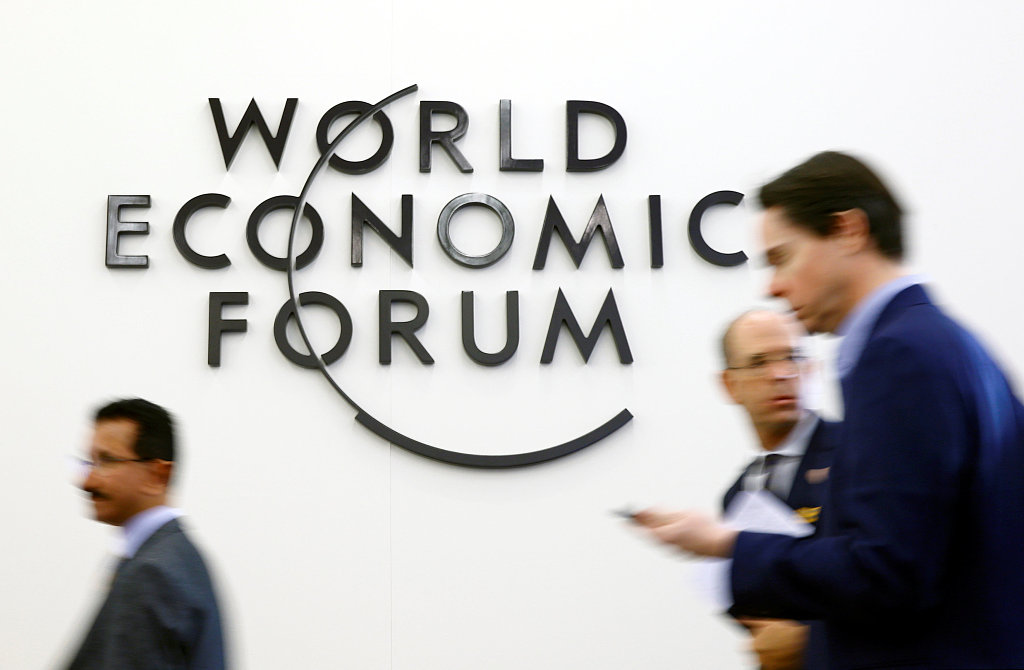Davos, Switzerland (People's Daily) - Chinese Vice President Wang Qishan said here on Wednesday that a historical perspective is key to understanding China, addressing the 2019 annual meeting of the World Economic Forum.

(File photo: VCG)
He said questions about China's development and progress can be answered from historical, cultural and philosophical perspectives.
"Given the close linkage between the past, the present and the future, one needs to learn about China's past in order to understand its present and forecast its future," he said.
This year's Davos forum gathers over 3,000 participants to discuss "Globalization 4.0," a buzzword that means a new wave of globalization in a digital world.
China probes a way forward over 70 years
Wang said that four to five generations of the Chinese people have, going through twists and turns, probed a way forward over 70 years.
This year marks the 70th anniversary of the founding of the People's Republic of China.
"Through trials and errors, with many lessons learned and heavy prices paid along the way, we have made great accomplishments and embarked upon a path of building socialism with distinctive Chinese features," Wang said.
China loves peace, rejects self-claimed supremacy
History has shown that the Chinese nation is peace-loving and it rejects the practice of self-claimed supremacy.
The Chinese culture values the teachings that one should help others to succeed while seeking one's own success, create a world for all, treat others with respect and pursue win-win cooperation, said Wang in his remarks addressing the 2019 annual meeting of the World Economic Forum.
He said the Chinese nation is a peace-loving, open and inclusive nation that keeps abreast of the times.
"We reject the practices of the strong bullying the weak and self-claimed supremacy," he said, adding that while developing itself, China also wishes to work with all countries for common development and a community with a shared future for mankind.
The advances in China in the past 70 years are not a godsend, nor a gift from others. Rather, they are made by the Chinese people through vision, hard work, courage, reform and innovation, Wang said.
The Chinese nation has made contribution to human progress, Wang noted, adding that what the Chinese people long for is to see China once again gain its rightful place among the nations of the world and achieve great rejuvenation.
Western multinational corporations are main drivers of economic globalization
Wang said that western multinational corporations and financial institutions are the main drivers of economic globalization.
"As they seek maximum profit in their operations, they allocate resources to countries and regions with low cost of production factors and sound business environment when building global industrial chains," said Wang when addressing the 2019 annual meeting of the World Economic Forum.
Wang said the economic globalization, which gained rapid ground in the last century, was started by Western developed countries, or the Mediterranean civilization.
In the late 20th and early 21st centuries, technological advances have significantly reduced the geographical distance and other barriers to exchanges among countries and accelerated the economic globalization process, he noted.
"Emerging economies have risen," he said. "As a result, economic globalization has reached a new stage as we now know."
In this process, said the vice president, China has moved up from the low end to the medium and high end of the global industrial chain.
The nearly 1.4 billion Chinese who are enjoying greater prosperity have unleashed huge demand backed by purchasing power, he said. "And this has unlocked enormous market potential that no one can afford to ignore."
Further development solution to global imbalances
He urged countries to press ahead with structural reform, strike a right balance between equity and efficiency, adopt effective policy measures to prevent the worsening of income inequality and fend off the impact on some regions and industries caused by new technologies and market competition so that all people stand to gain from continued development.
"The last thing we should do is to stop making the pie and just engage in a futile debate on how to divide it," he stressed, saying what is needed is making the pie bigger while looking for ways to share it in a more equitable way.
"Shifting blame for one's own problems onto others will not resolve the problems," he added.
Shaping global architecture for better future of mankind
He called for efforts to uphold multilateralism and jointly build a system of rules for technology and new international cooperation framework featuring peace, security, democracy, transparency, inclusiveness and mutual benefit, so that all people can gain from technological innovation.
Pointing out that new technologies bring opportunities and also create risks and challenges, Wang said that countries need to uphold the security of all mankind and need to improve policy environment and promote social prosperity and stability.
"We need to explore the adoption of relevant rules and standards in a phased way, while leaving broad space for the dissemination and application of scientific discovery and technological innovation," he said.
Wang also called for accommodating in a balanced manner the interests of all countries, especially those of emerging market and developing countries.
"One should not ask the whole world to address only the security concern and comply only with the standards of developed countries or individual countries," he said.
This year's Davos forum gathers global elites to discuss "Globalization 4.0," a buzzword that means a new wave of globalization in a digital world. More than 60 heads of state or government, 40 international organization heads and 1,700 business leaders attended the event.


